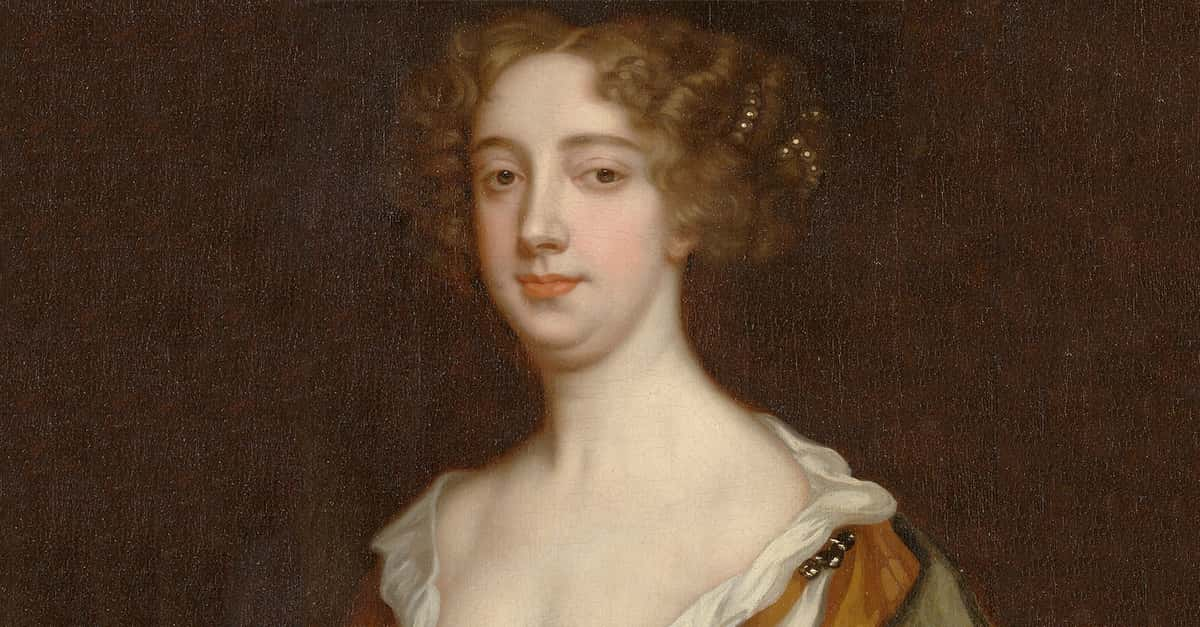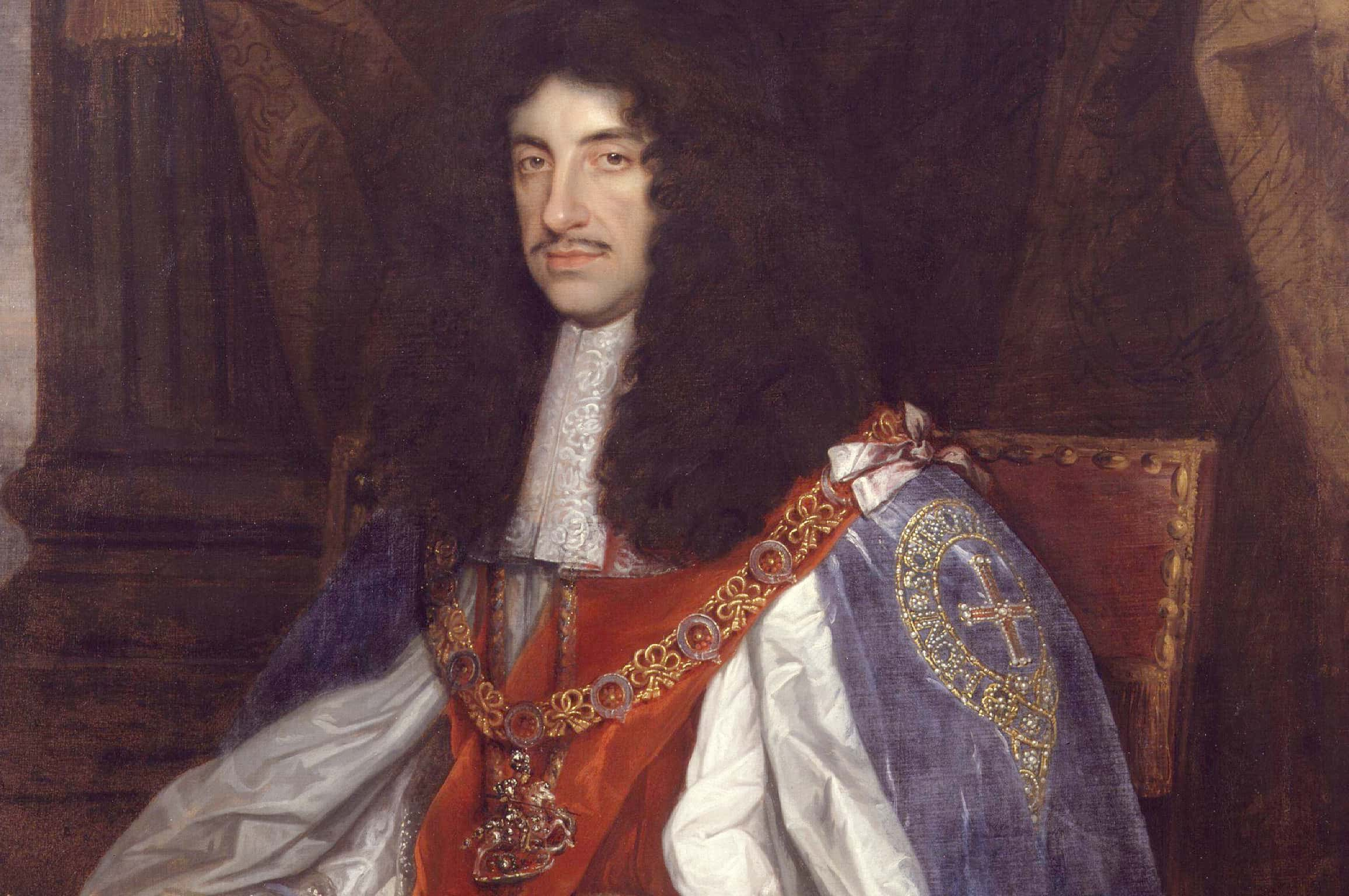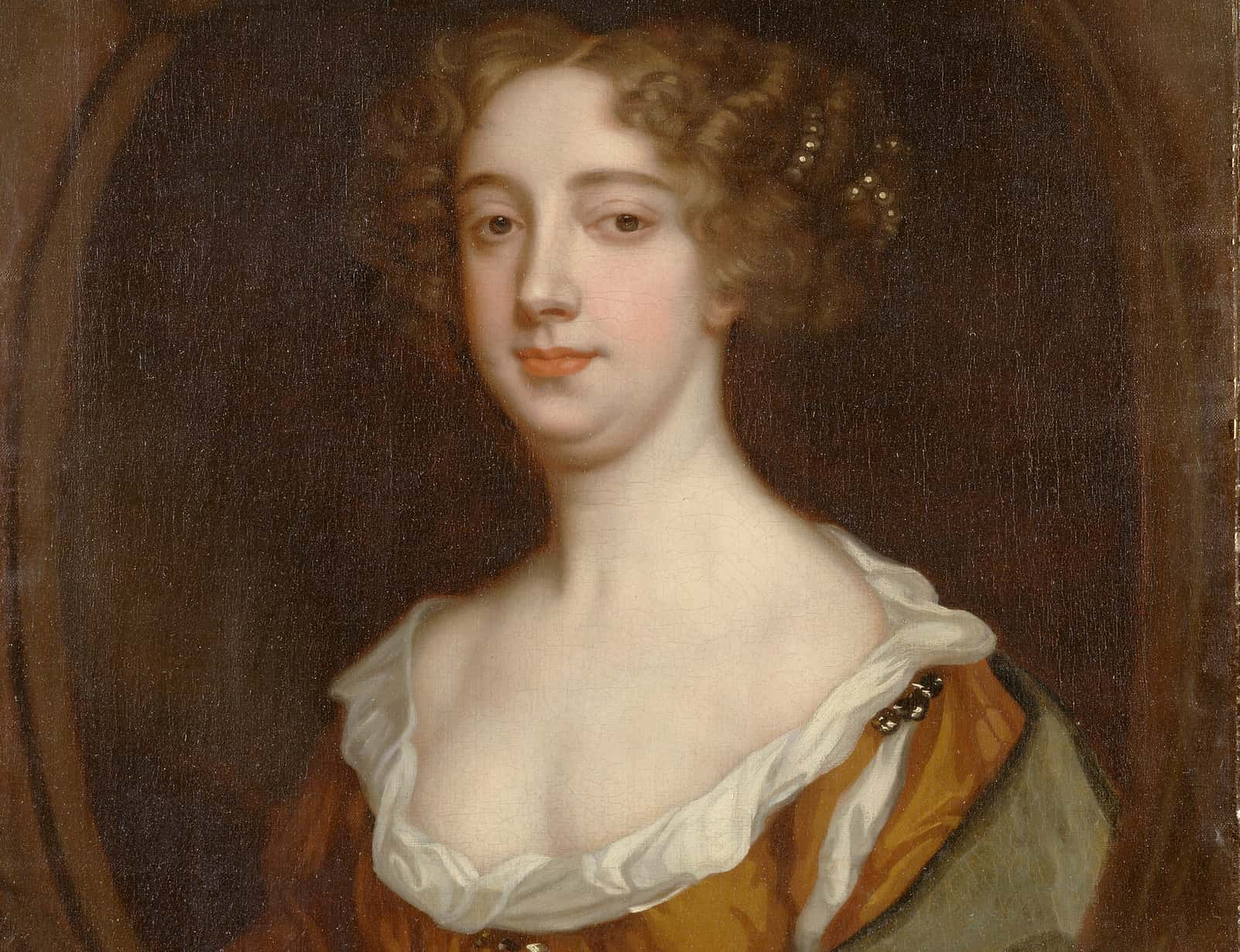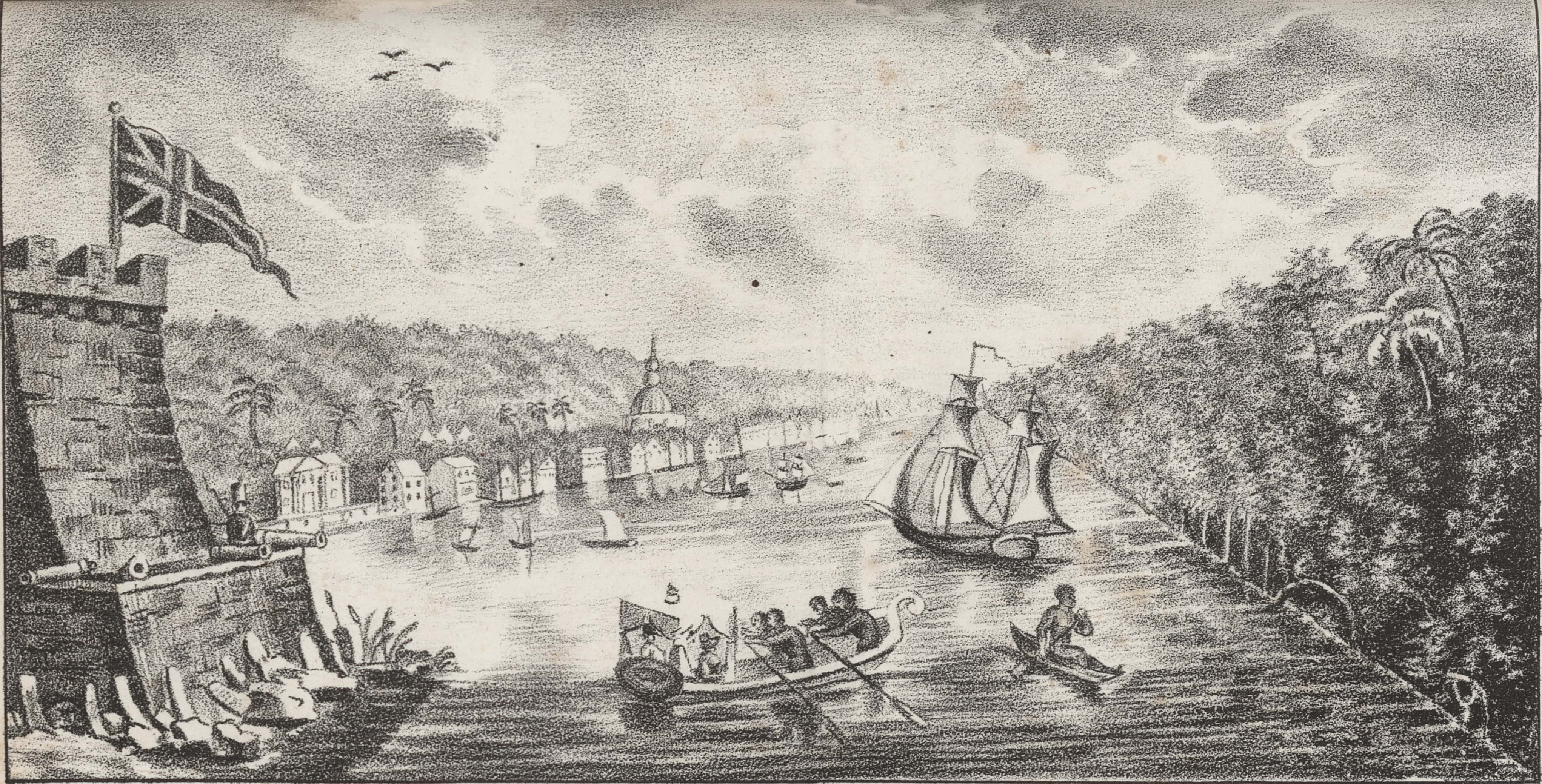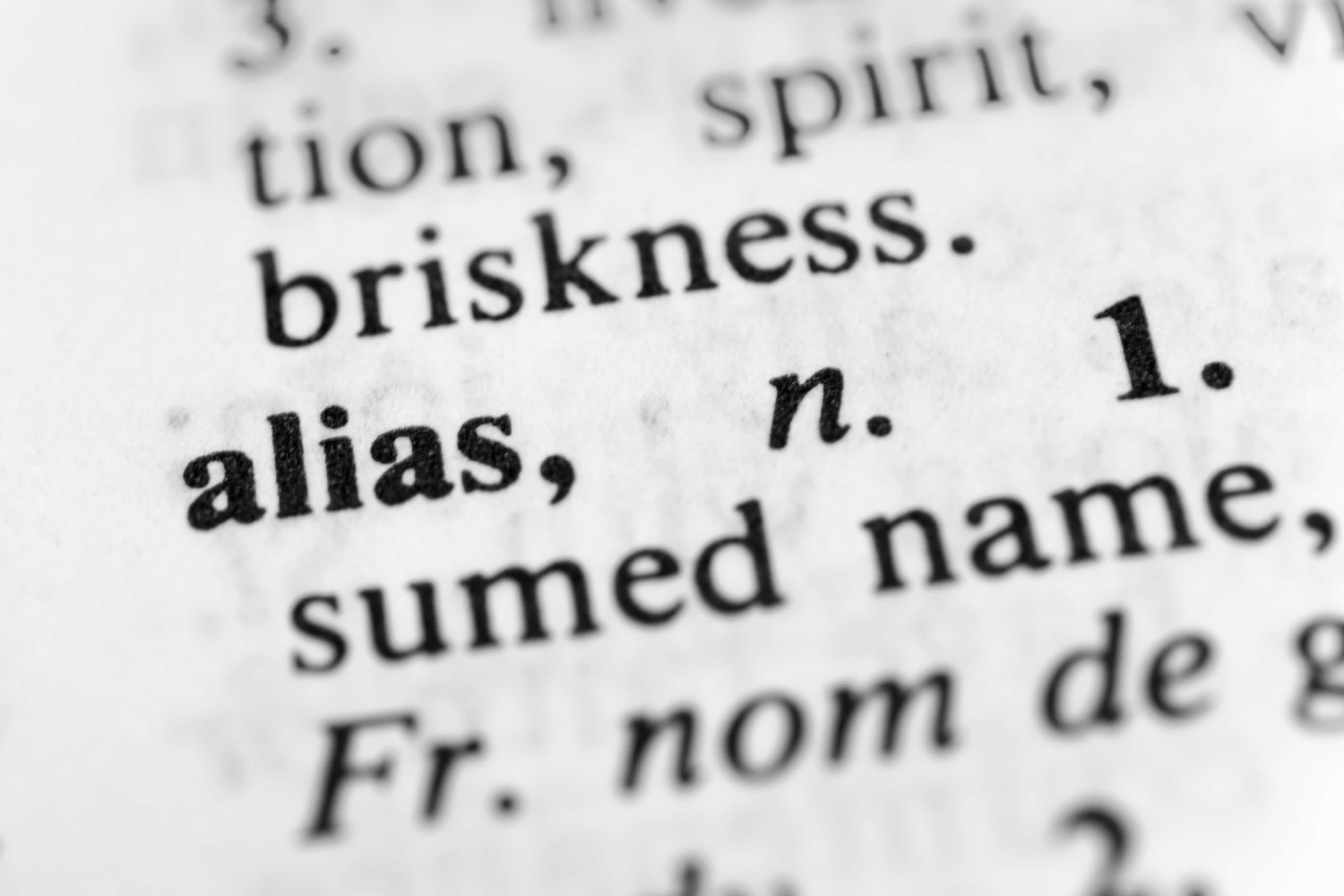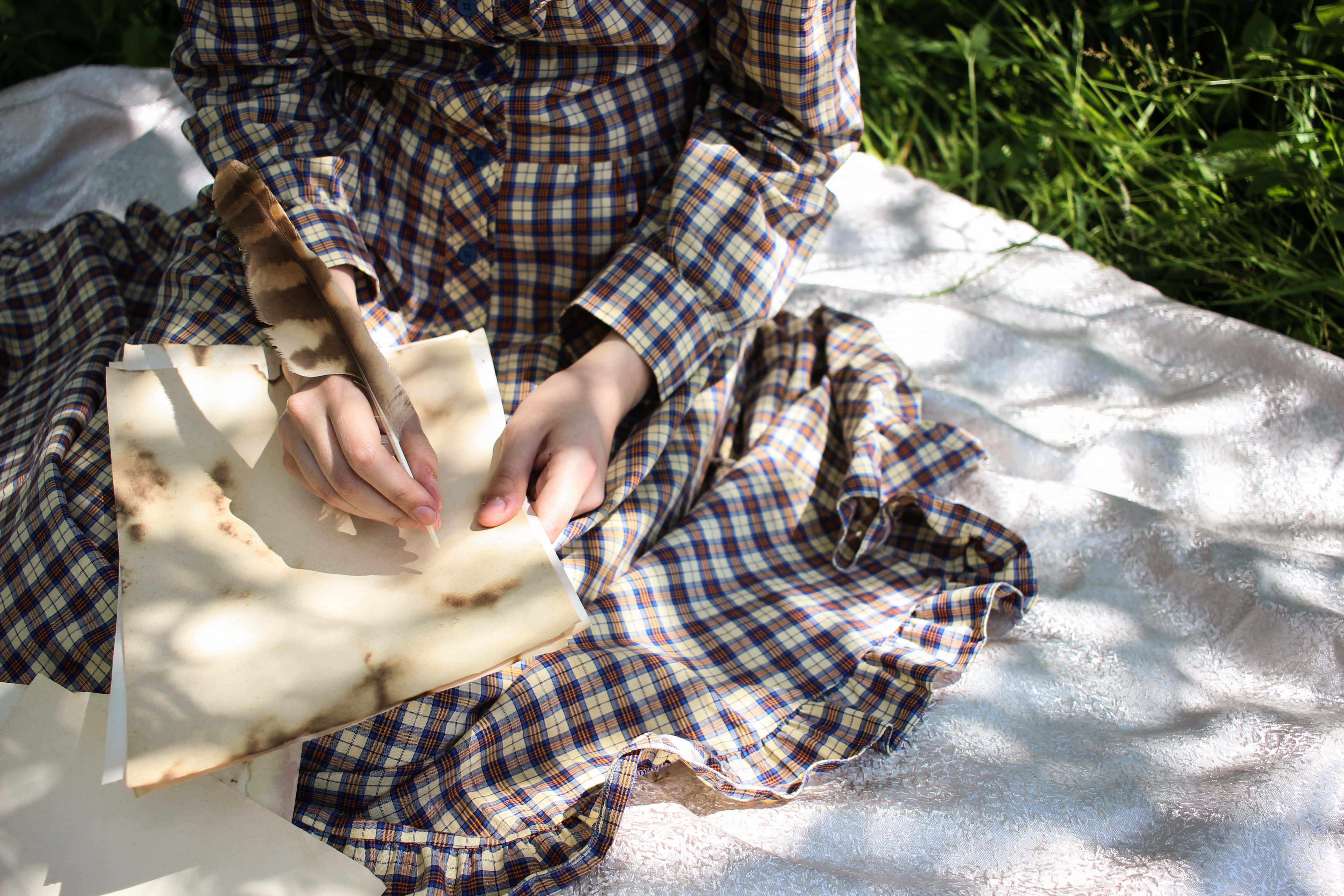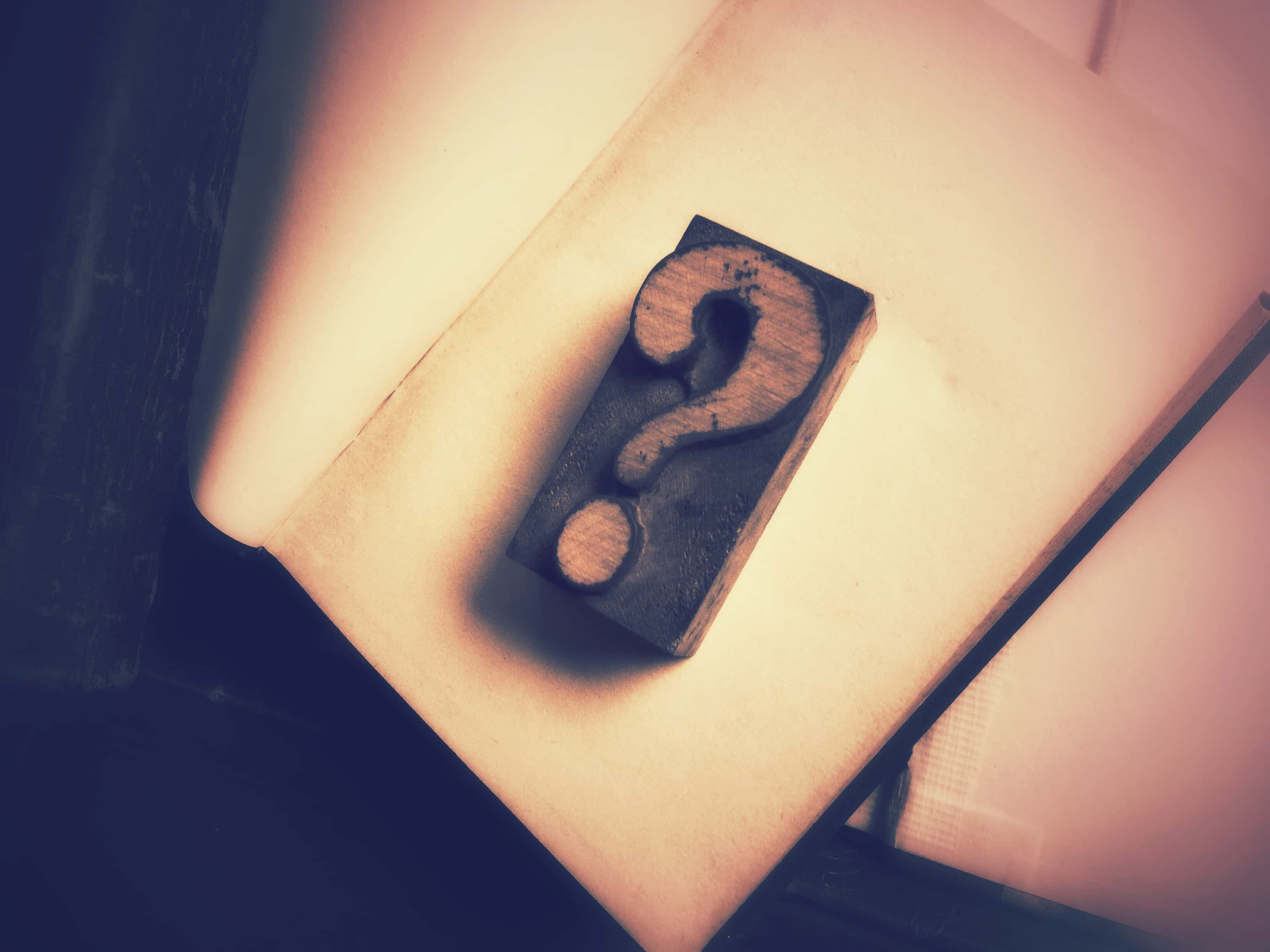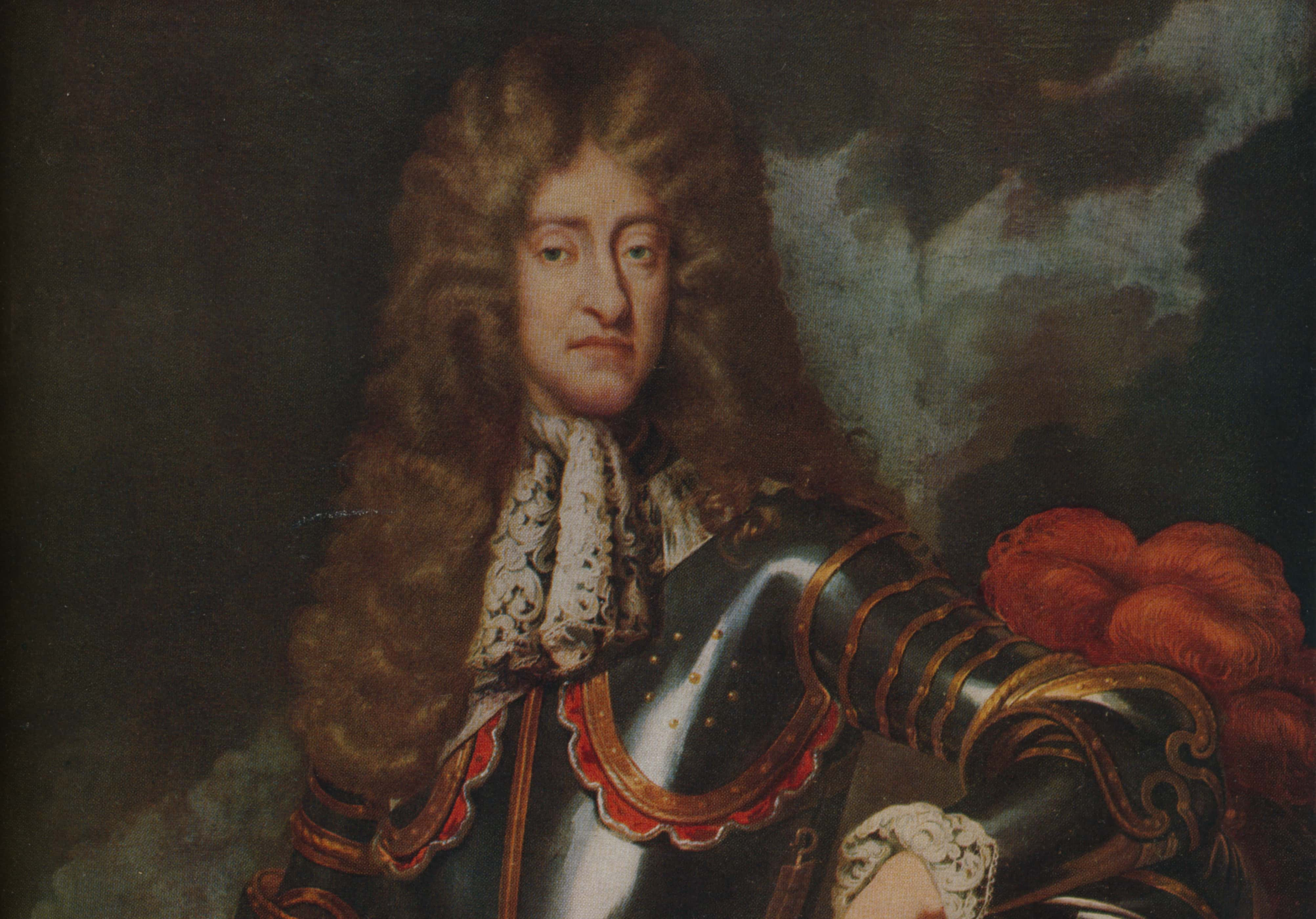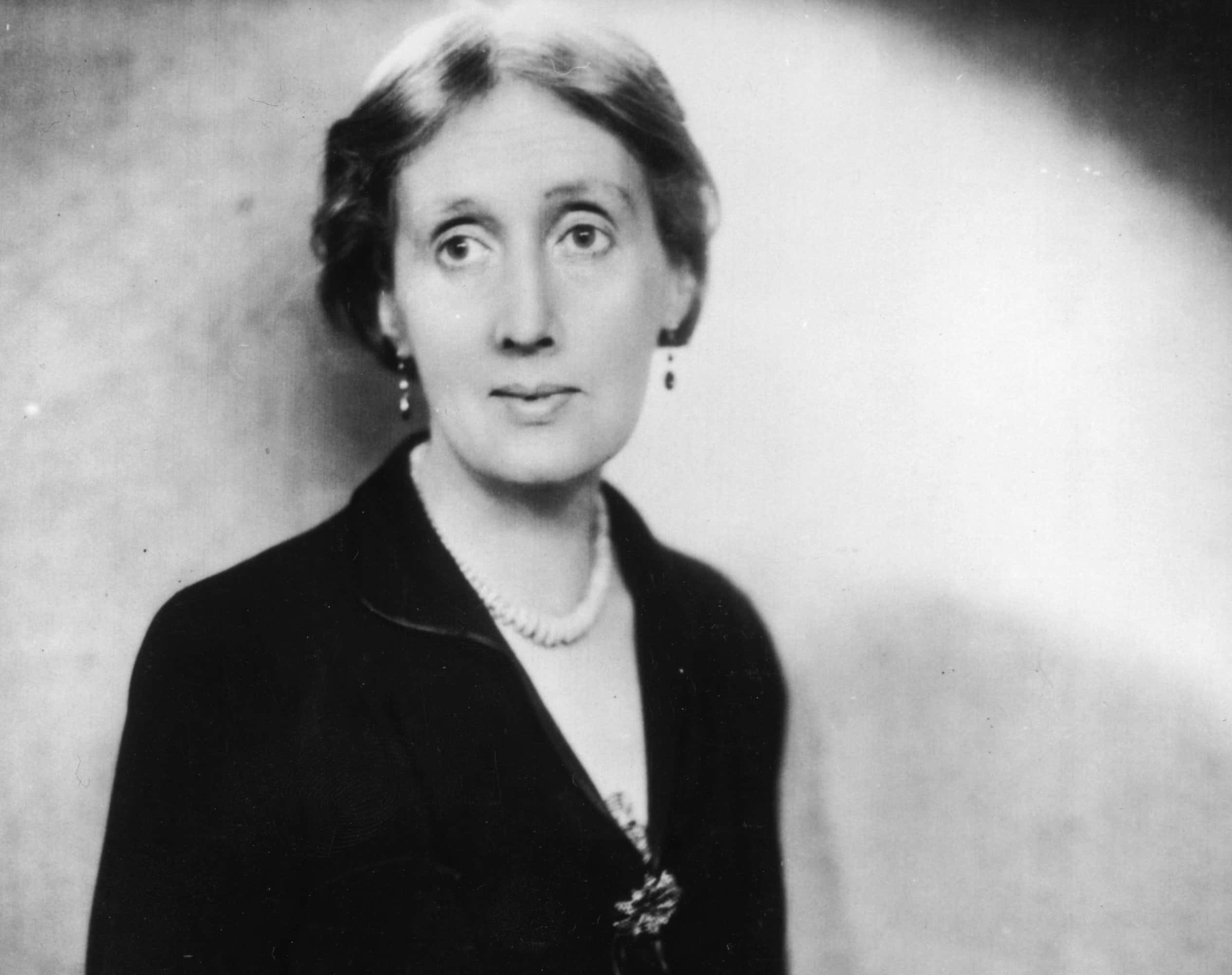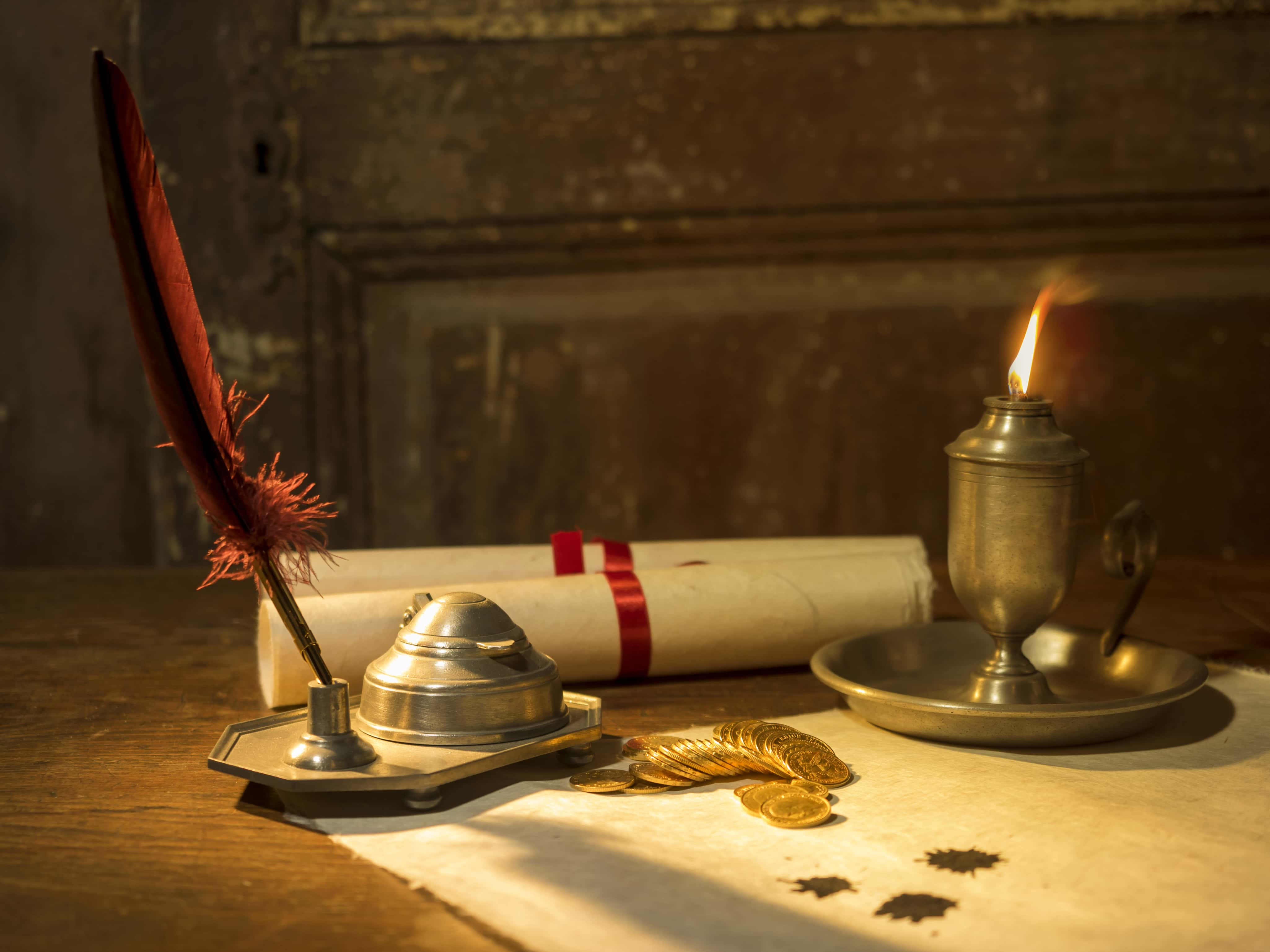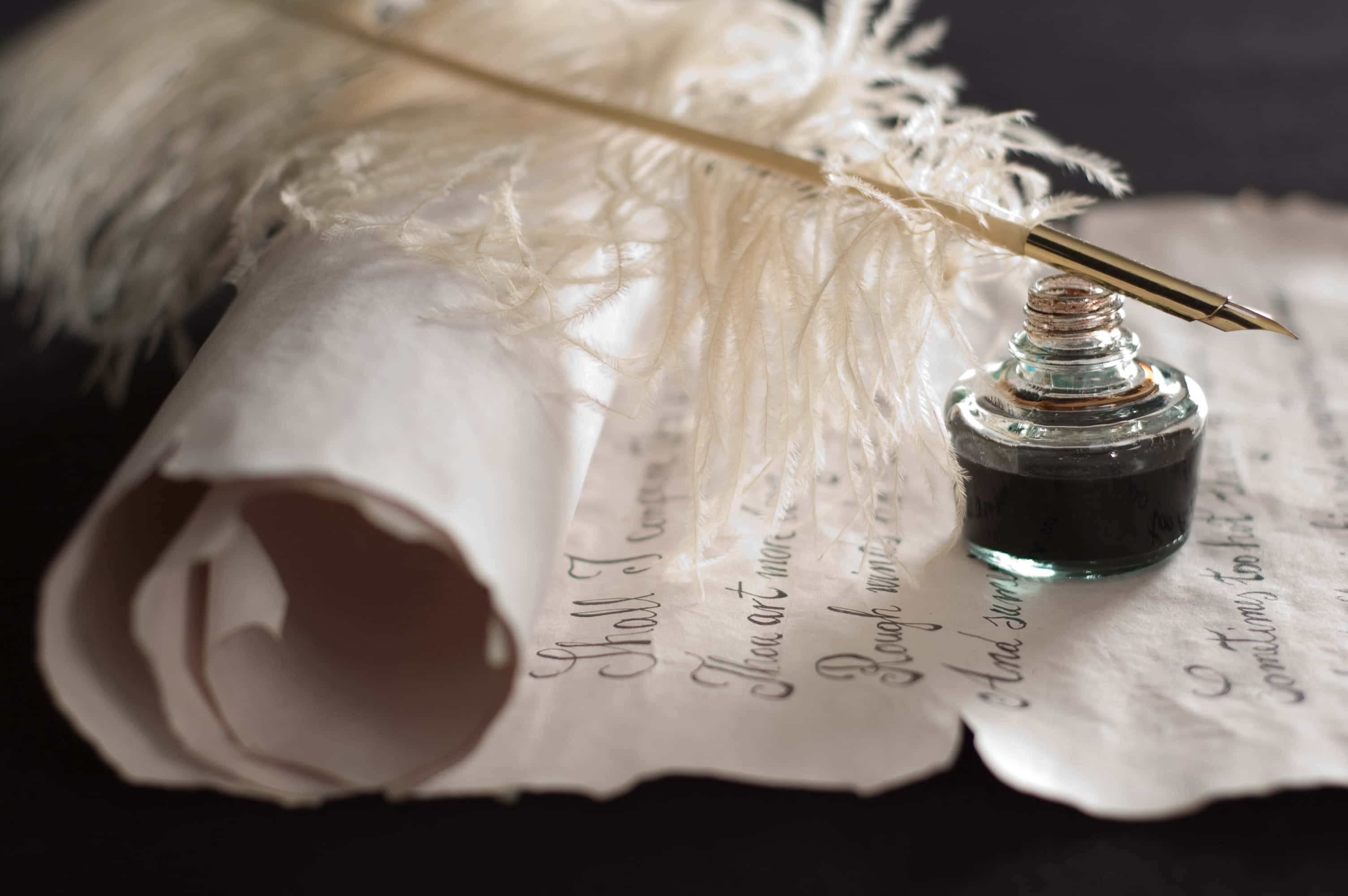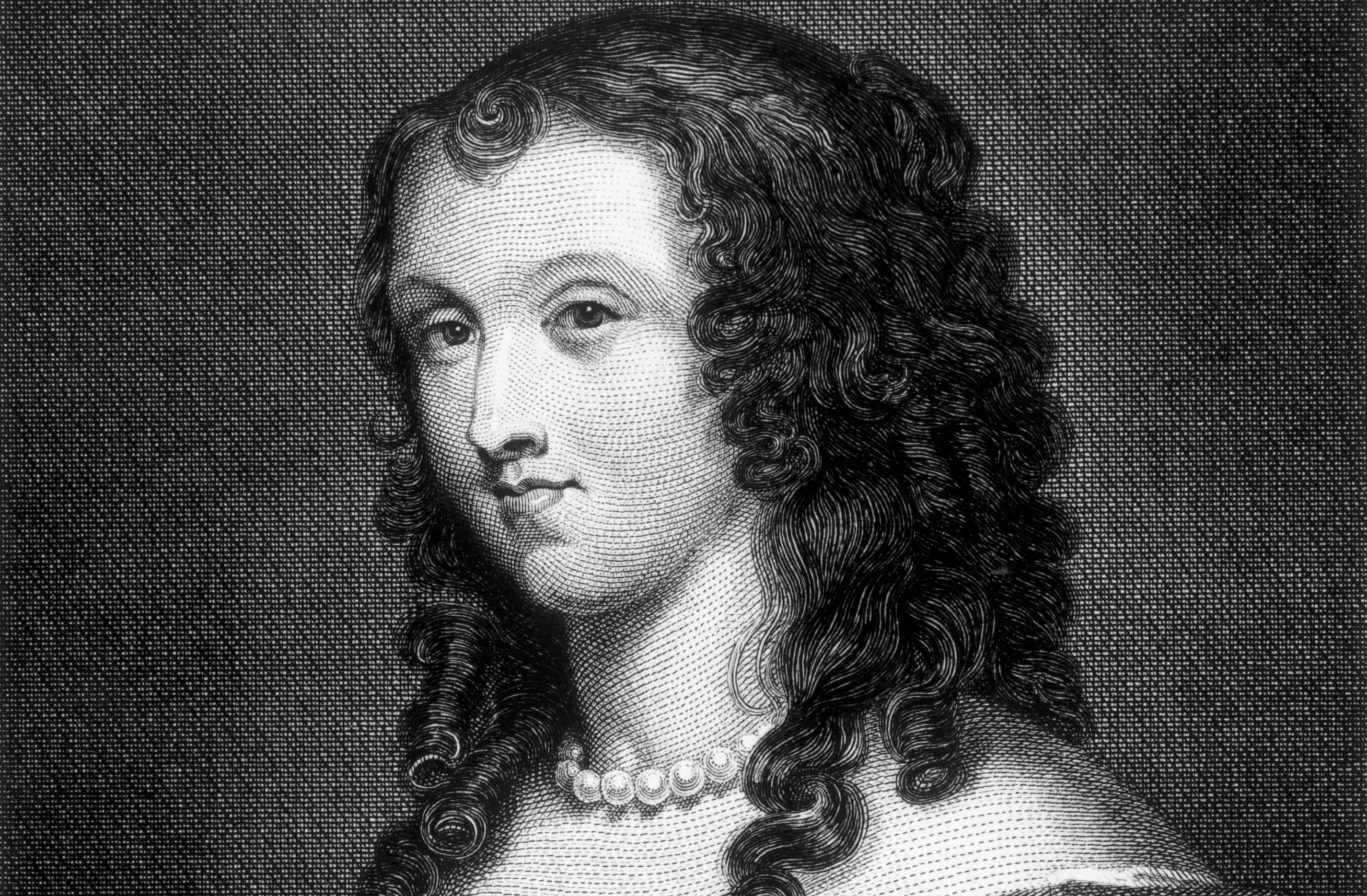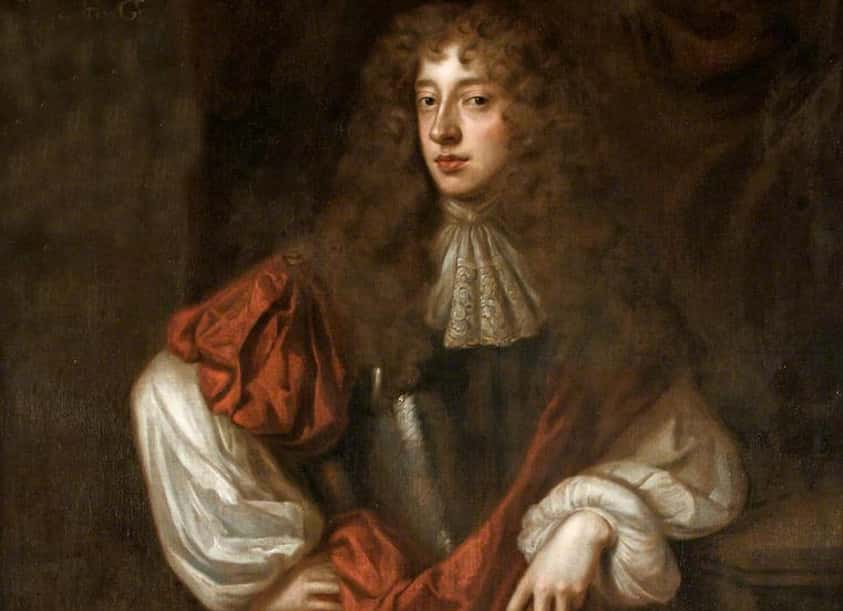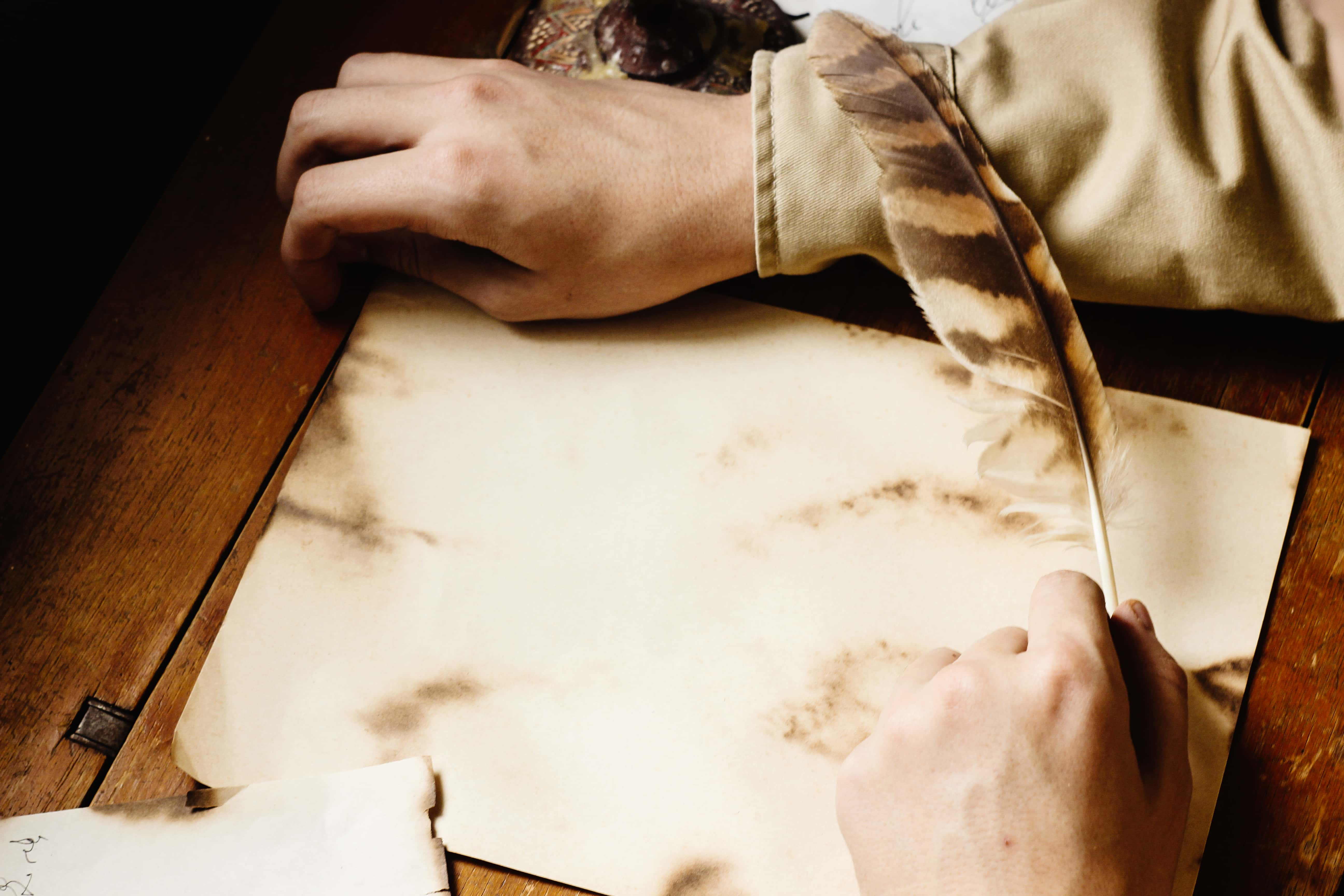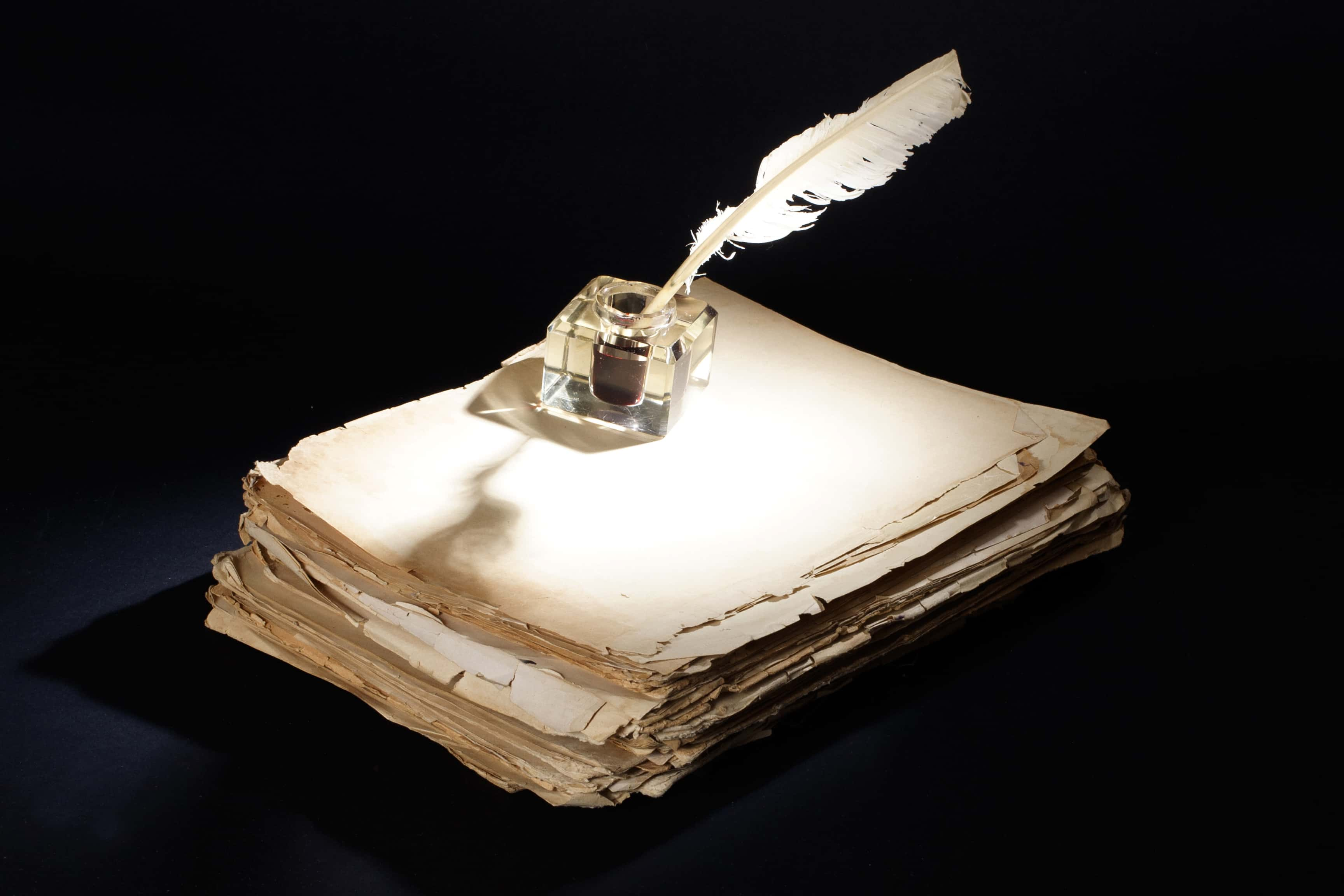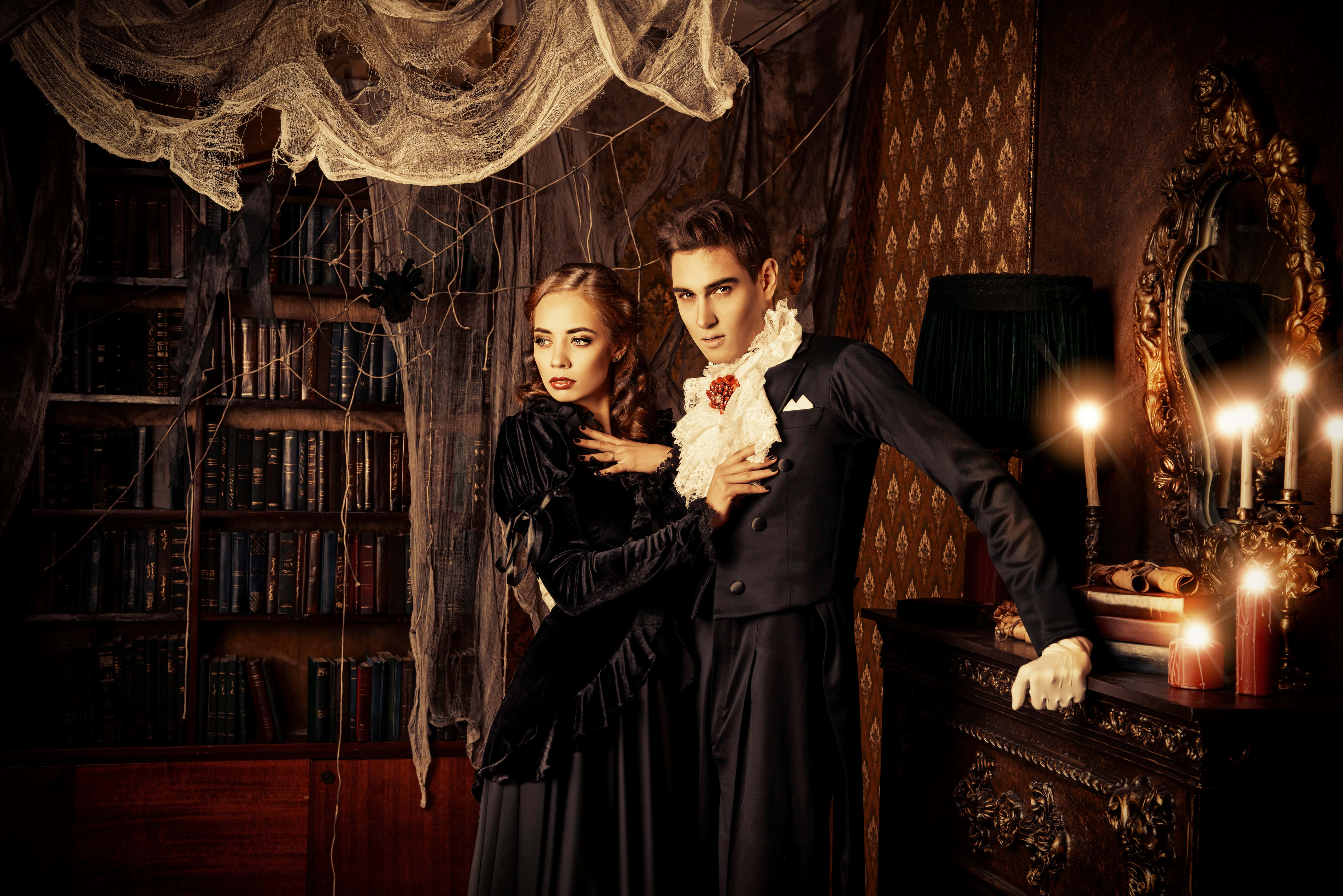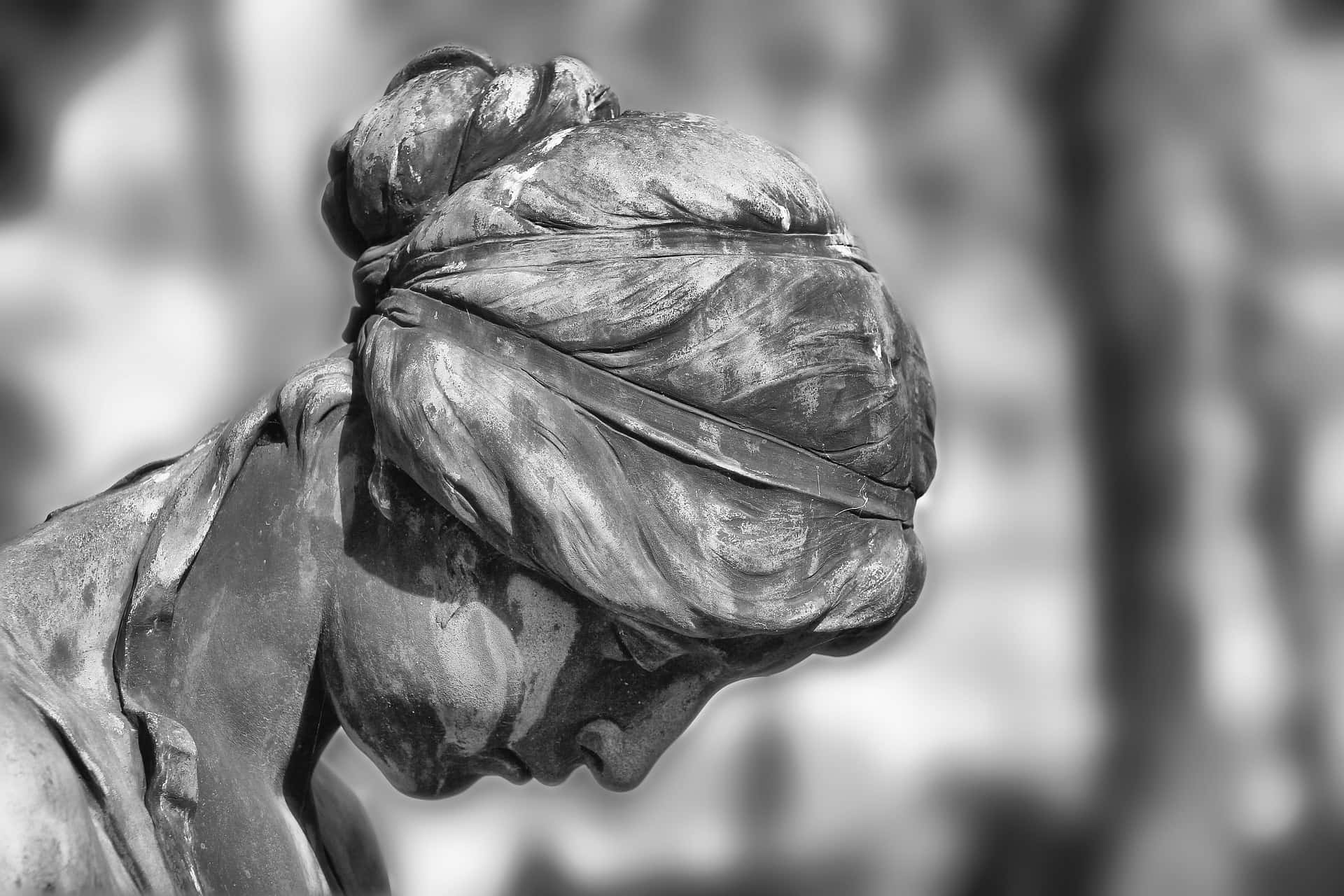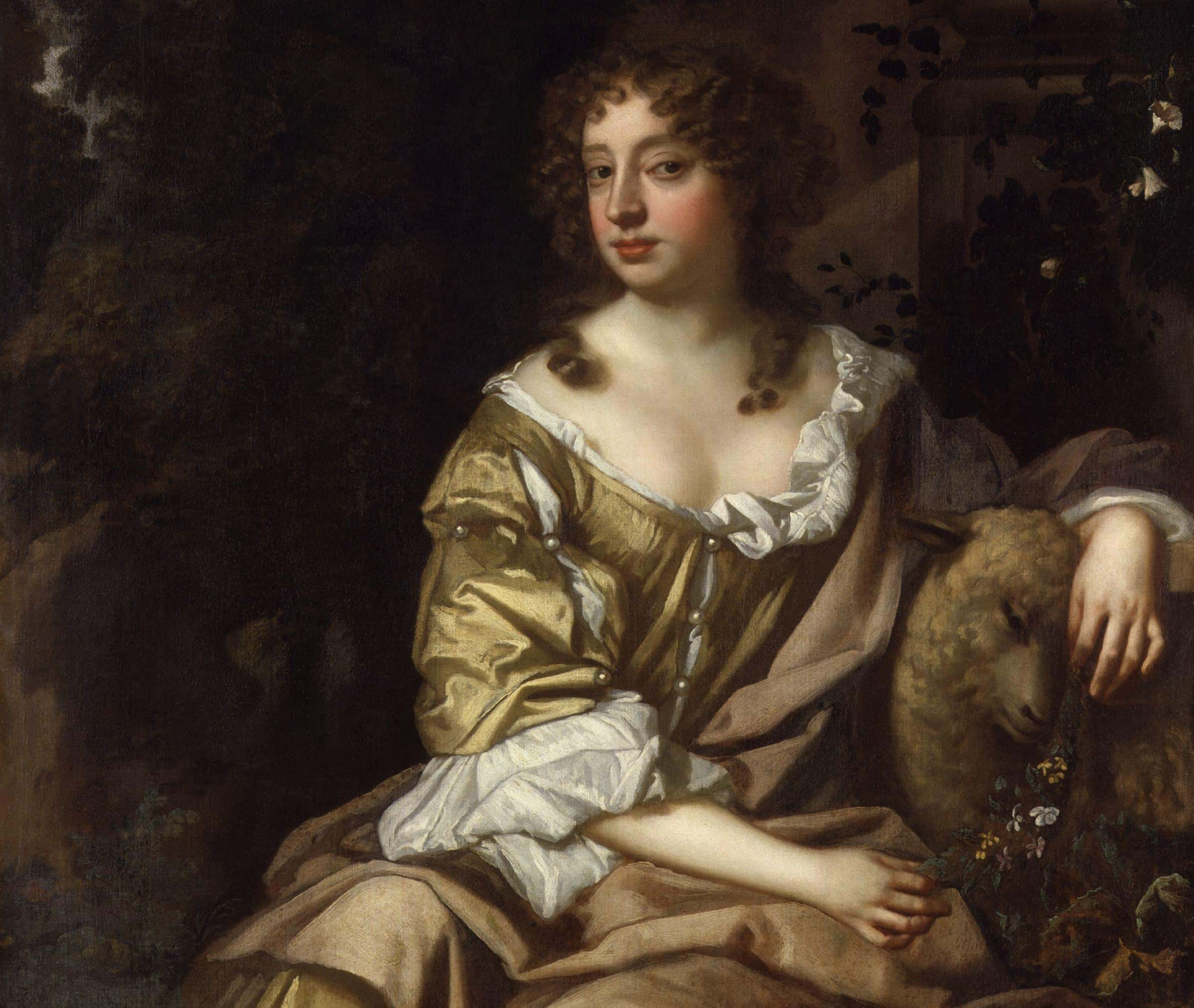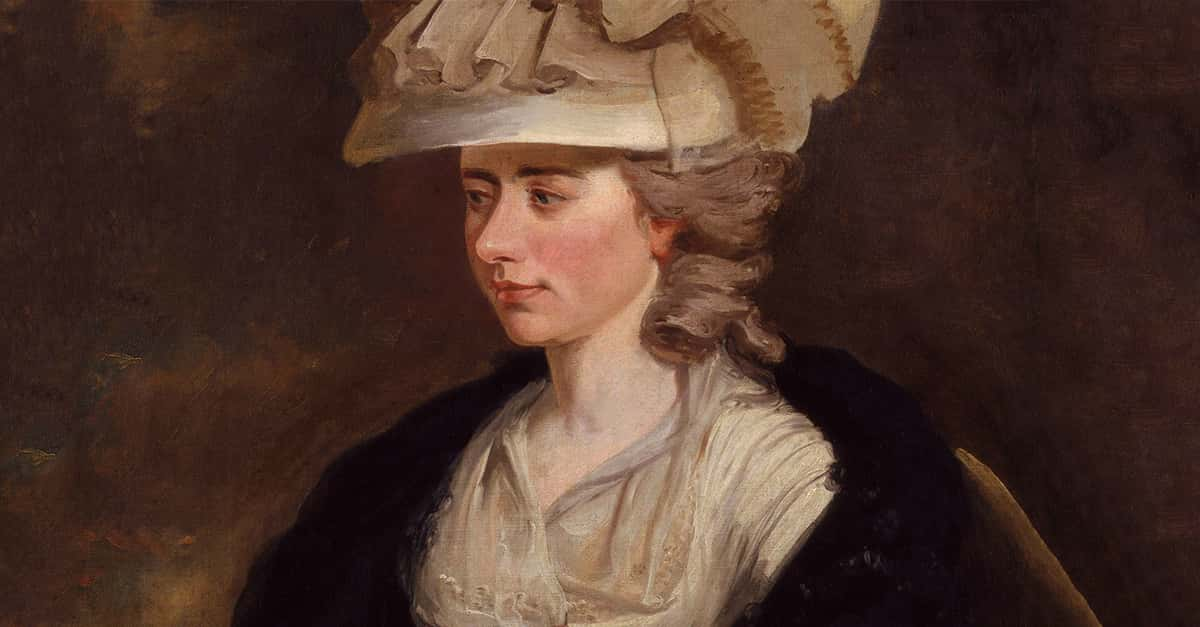How does a 17th-century barber’s daughter become an international spy and England’s first female professional writer? Ask Aphra Behn, the voice of the Restoration who took the literary (and espionage) world by storm…with more than a few hiccups. Behind the lines, the woman herself is an enigma: Her origin story is steeped in myth, and her financials were as muddy as her romantic past. Raise a pen to these 42 facts about Aphra Behn.
1. A Snip Off The Old Block
Aphra Behn has multiple “origin stories"…of varying truth. Most people believe, however, that she was born in December 1640 to a barber. His daughter would prove handier with a pen than a blade.
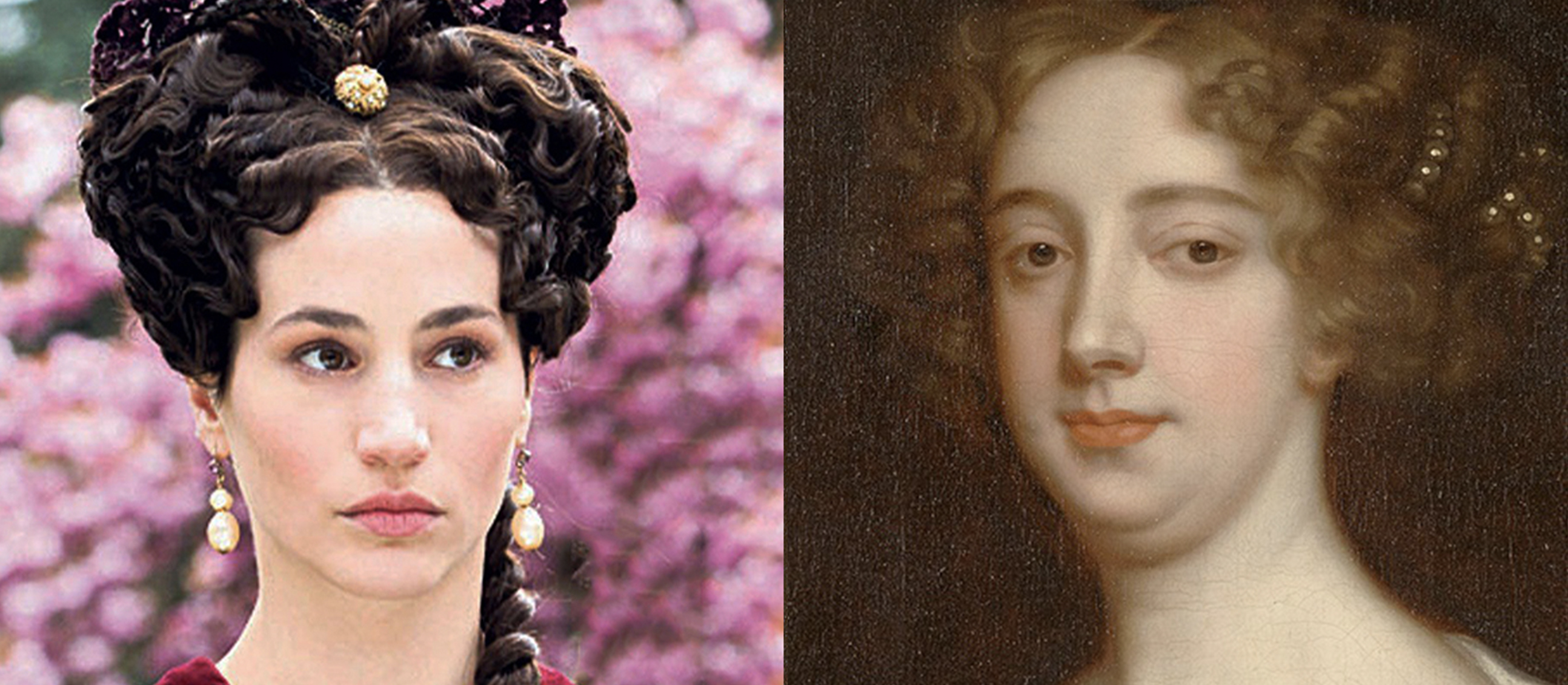
2. Put A Crown On It
Behn was a staunch monarchist, and in 1666, she attached herself to the court of Charles II and soon began espionage work on behalf of the newly restored royal crown.
3. Charm Has Its Limits
Behn’s first spy job was a honeypot mission. After the outbreak of the second Anglo-Dutch war in 1665, she was stationed in Antwerp to “develop intimacy” with Thomas Scot, the son of an enemy of the crown. Behn's mission was to turn Scot into a double agent. But espionage is a dangerous game—and Scot dealt her a cold-hearted betrayal. He gave her right up to the Dutch.
4. Up Close And Personal?
Another tall tale from Behn’s childhood might have inspired her iconic slave revolt novel, Oroonoko. As she grew up in the colony of Surinam, some said Behn met a Black leader of a revolt in person. Given that Behn herself took the position as narrator in Oroonoko, many critics take for granted that the book was inspired by real-life encounters in the colonies.
5. Call Me By My Name(s)
“Aphra Behn” might not be her name at all, but rather an alias she used as a political spy. Among her other code names were “Ann Behn,” the numeric “agent 160” and the less-than-elegant “Mrs. Bean” (no relation to the Rowan Atkinson character! I think…).
6. Who Needs Alimony When You Have An Alias?
It’s also possible Aphra Behn just took her last name from her husband and didn’t give it back. After her supposed return from the colonies, she wed a merchant named Johan Behn, who was either of German or Dutch origin. By 1664, however, the 24-year-old Aphra was back on the singles’ market. Her husband had either passed on or left her.
7. Everyone’s A Critic
Of course, not all Behn’s contemporaries were happy that a woman dared write plays for the public—and they went to disturbing lengths to tear her down. Critics outright sabotaged the debut of her 1673 play, The Dutch Lover. But Behn couldn't be deterred. She later clapped back and declared it was only miseducation that held women back from their full potential—not any innate inferiority.
8. The Original Boyfriend Who Lives In Canada
Another theory claims that Aphra Behn’s husband never existed. Some historians theorize he was just a cover story for her spy work. After all, who wouldn’t trust a young widow? Or a bride left at the altar? As one expert wrote, Behn "is not so much a woman to be unmasked as an unending combination of masks". Sounds about right.
9. You Can’t Eat Fashion, After All
It doesn’t pay to snitch. The espionage life took a toll on Aphra Behn’s finances, and she wasn't prepared for the sudden cost of living spike that came from relocating to fancy Antwerp. Quickly, Behn got into utterly dire straits. Her money situation got so bad, she pawned her jewelry within the first month of her arrival.

History's most fascinating stories and darkest secrets, delivered to your inbox daily.
10. Are You Going Soft On Me?
Behn caused controversy just for being a woman playwright—but her writing was also very scandalous. She even penned poetry about male impotence in an era where women were supposed to be mute on such tawdry topics. Said poem, titled The Disappointment, talked about erectile dysfunction from the perspective of a lady. Go off, Aphra.
11. You Can’t Put A Price On Patriotism
For a King of England, Charles II was bad at paying back his spies, and he took his sweet, royal time giving the cash-strapped Behn her money. Even her return trip home had to be done on borrowed cash! In fact, it's quite likely that Charles II never paid Behn at all for her spy services. The love of her country would have to do…
12. No Return Flights
Behn was a child of the English Civil War, which took place from 1642 to 1651. According to one parable, Behn spent her childhood fleeing with her father and mother to Surinam, a Dutch colony in the Guianas. Once there, tragedy struck: her father passed on. Such a tale has never been confirmed—but it sure makes for a good story, no?
13. You Don’t Have To Pay The Ultimate Price
Behn was the bad girl of her generation—and it caught up to her in a dangerous way. The authorities even once filed a warrant for her arrest because of her mounting debts. However, there is no evidence that she ever spent a day in prison. Maybe it does pay to spy for high places, even if those high places never pay you back…
14. It’s A Living!
Some scribes live to write; Aphra Behn wrote to live. To make ends meet in her precarious position, she put her witty pen toward the production of plays for the King’s Company and Duke’s company. While this seems like rough work, Behn entered the market at a lucky moment. Charles II had lifted the previous ban on dramatic arts and was eager to distribute his patronage.
15. Having Nun Of It
Had her other career options of spying and writing not worked out, Behn said she would’ve become a nun. Such comments led historians to believe she grew up Catholic. In fact, Behn had many Catholic allies, which would’ve raised a few eyebrows in her very Anglican age.
16. It Pays To Pray
As a monarchist, Behn supported the House of Stuart as a whole, but she had a particular soft spot for one royal: James, Duke of York, King Charles II's brother. In fact, her sympathies may have hidden a secret. James, who later became King James II of England, was a Catholic, further suggesting that Behn held dangerous Catholic beliefs.
17. Write To The Finish Line
Aphra Behn was the second-most productive playwright in 1670s and 1680s England. Who beat her? The Poet Laureate John Dryden.
18. It Takes A Gal To Know A Gal
One of Behn’s biggest post-mortem defenders was 20th-century writer Virginia Woolf. Woolf reserved a defense of Behn in her own magnum opus, A Room of One’s Own, writing that "it was she who earned [women] the right to speak their minds".
19. From The Heavens To The Stars
Behn spent the last year of her life looking to the stars. In 1688, she translated a French popularization of astrology into A Discovery of New Worlds. Of course, she put her own twist on the work by turning the text into a novel and giving her own introduction.
20. Double Standards
When Aphra Behn released her most famous play, The Rover, dark whispers started circulating. According to the rumor-mongers in London and around Europe, Behn had actually plagiarized her renowned masterpiece. It was simply too good for a woman to have written it. Gee, thanks for the vote of confidence there, guys.
21. Cuckoo For Coca
Behn’s final literary work was another translation: the final volume in Six Books of Plants by Abraham Cowley. But don’t judge a book by its title: the poetry collection contains the earliest recorded utterance of “coca” in the English language. Iconic.
22. Miss Independent
After the death or abandonment of her husband followed by the financial fickleness of her king, Behn became staunchly independent. She even allegedly vowed to never rely on another person for income again. Somehow, this translated into a writing career, which was not the most “stable” of professions, even then.
23. Every Word Counts
Debt took its toll on Behn’s health. Her wellness began to decline in the last four years of her life—and the results were terrifying. At the very end, Behn was so frail and sick that she could barely hold a pen in her hand. Nevertheless, the plucky, stubborn woman persevered and remained a prolific writer until her passing.
24. A Poet And You Didn’t Know It
We know Behn best for her novels and plays, but she actually got her start in poetry. Unfortunately, it was even harder to garner a living as a poet than as a producer of books and shows. Nevertheless, she maintained her lyrics as a side hustle and a space to develop her creativity.
25. The Recycled Reputation
Not one to be subtle, Behn carried over her spy name into her writing. Her literary circles knew her as “The Incomparable Astrea,” which was one of the operative names she used as a foreign spy.
26. Born On The Wrong Side Of The Bedsheets
Given her mysterious upbringing, one theory says that Behn's past has a steamy secret. According to some, she may have been the highborn lovechild of John Johnson, a lieutenant general of Surinam, who she later spent time with as a young adult. Whatever the truth, people are always eager to attribute an extraordinary origin story to this peculiar writer.
27. Blood Is Thicker Than Water
According to Behn herself, she dedicated her life to "pleasure and poetry".
28. Old York Time’s Bestseller
In the 1680s, Behn started to move away from playwriting and toward laying the foundations for the English novel as we know it. Her first novel was Love-Letters Between a Nobleman and His Sister—and it had a scandalous inspiration. During Behn's time, a Lord Grey caused a society stir when he eloped with his own sister-in-law, and the brash Behn simply couldn't resist turning the real-life event into fiction.
29. Freedom Or Bust
Aphra Behn’s most famous literary contribution is her novel Oroonoko, which upends common assumptions about African "backwardness" and European "advancement". This has led many to read Oroonoko as a proto-abolitionist work of art.
30. Laying Down With The Legends
Sadly, Behn drew her last breath on April 16, 1689. The writer was just 48 years old, but she was given the honor of a burial at the legendary Westminster Abbey. The inscription on her tombstone is crushing. It reads, "Here lies a Proof that Wit can never be Defence enough against Mortality". Ouch, Aphra. There's no need to rub it in.
31. Pen Pals
In her prime, Behn palled around with the literary elites of her day. Among her friends were literary legends from John Dryden to her lover John Hoyle. These wordy companions also ran in the circle of arts patron—and notorious libertine—John Wilmot, the 2nd Earl of Rochester.
32. Someone Sounds Jealous…
After Behn's demise, things somehow got worse. In the eyes of later writers, her sexually scandalous reputation overshadowed her importance. Crafting a cruel diss, writer Alexander Pope even once wrote, “The stage how loosely does Astrea tread, Who fairly puts all characters to bed!" In other words, Behn’s content was just too steamy!
33. Will Line For Dimes
Ever the monarchist, Behn often attacked the opposing party of the Whigs. She was particularly miffed at the government for denying Charles II his kingly “right” to more funds, and she often wrote poetry criticizing them. Considering the king never liked giving her any funds, this seems like a pretty forgiving move on Behn's part.
34. You Can’t Sit With Us!
Though Behn is buried in the East Cloister of the famed Westminster Abbey, this may have actually been a cruel snub. At the time of her passing, Behn was out of favor with the new royal regime of Mary II and William III, and perhaps this is why the monarchs chose not to bury her in the illustrious "Poet's Corner" despite her prolific career.
35. Monkey See, Monkey Do (Someday…)
Everyone starts somewhere. Before she was an official playwright, Behn worked as a scribe. She would soon graduate this “internship” and begin drafting her own works—not just writing them out for others.
36. Behn Puts A Price On Grief
After the demise of King Charles II, Behn remained loyal to the royal family. She wrote eulogies to the late king and supported the succession of his brother, James II. Alas, the House of Stuart’s stinginess survived King Charles: Behn had to borrow £6 just to fund her next play.
37. He’s A Wild One
Behn took many lovers throughout her life, but one of her most famous was the feisty lawyer John Hoyle. Sadly, their relationship was full of heartbreak. The hard-living Hoyle had a penchant for getting into violent bar fights, and Behn wrote frequently about and to her bad boy, admonishing him for his “depraved ways".
38. Poetic Justice
In 1692, fate caught up to Behn's beloved John Hoyle. He apparently never listened to her advice, and was fatally stabbed after getting in yet another bar fight.
39. Ex Marks The Final Resting Spot
Experts believe that Behn’s ex-lover, John Hoyle, wrote the epigraph on her tombstone. What has your ex done for you lately?
40. No Respect
Behn’s signature wit and boldness did not always serve her well—and in the 1680s, she went much too far. One of her plays mocked the illegitimate son of King Charles II, James the Duke of Monmouth, which is never a good idea. King Charles was so enraged at the play, he had Behn apprehended for her foolish insolence.
41. Gal Pals Headline Together
Behn kept scandalous company. She was good friends with Charles II’s most popular mistress, the stage actress Nell Gwyn.
42. What Are Wingwomans For?
Behn and Nell Gwyn stuck together through thick and thin—and when Gwyn needed help with a rival, Behn came up with an ingenious plan. According to lore, Behn used her spy skills to slip laxatives into the drink of Moll Davis, one of King Charles's potential mistresses and Gwyn's competition. With Davis indisposed, Behn’s friend now had a clear path to the royal bedroom.

